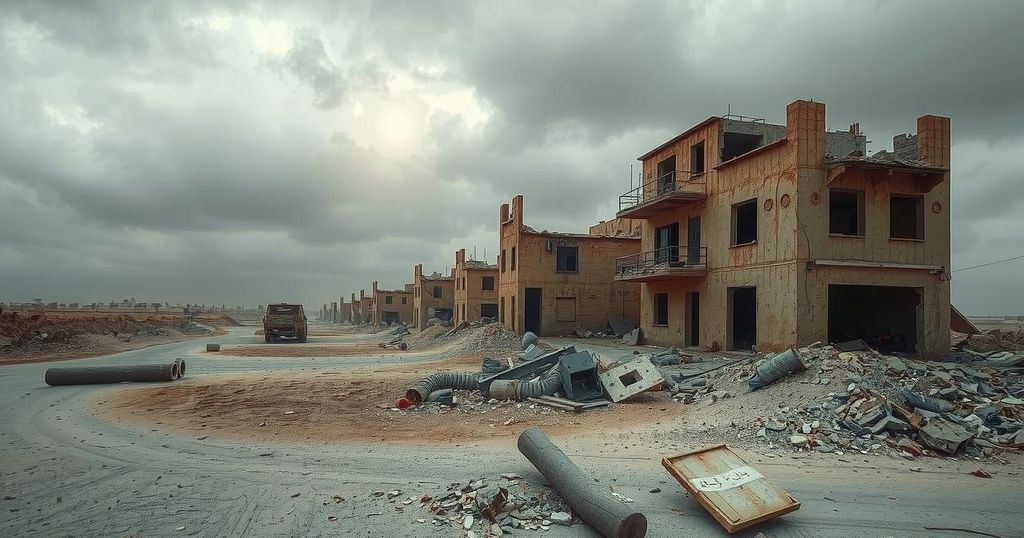Trump Proposes Controversial Palestinian Relocation Amid Gaza Crisis

- Trump proposes relocating Palestinians from Gaza to neighboring countries.
- Israeli ultranationalists express support for Trump’s relocation plan.
- Hamas rejects the idea of leaving Gaza, insisting on their right to remain.
- Military shipments to Israel have resumed, complicating ceasefire efforts.
- The future of the ceasefire hinges on the release of hostages.
Trump’s Proposal to Relocate Palestinians Sparks Controversy
Trump’s comments on Saturday exhibit a significant assumption regarding the crisis in Gaza, suggesting a relocation of Palestinians and a so-called ‘clean out’ of the region. On Air Force One, he expressed a dramatic solution, indicating a preference for moving approximately one and a half million individuals to neighboring countries, including Jordan and Egypt. This move, he argues, could offer them a chance to live in peace, away from the ongoing violence and instability of the Gaza Strip. Such statements have ignited reactions from various political figures, particularly within Israel’s far-right factions, who welcomed the idea as a potential solution to the demographic issues in the region.
Political Reactions to Trump’s Proposal and Hamas Response
The Israeli response to Trump’s comments remains somewhat cautious but is highlighted by support from ultranationalist politicians like Finance Minister Bezalel Smotrich and former national security minister Itamar Ben-Gvir. Their endorsements signal a possible alignment with Trump’s vision, which envisions building housing in Arab states rather than addressing the socio-political issues inherent in Gaza. Meanwhile, Hamas officials have swiftly rejected this notion, asserting their commitment to remaining in the region regardless of the dire conditions. Sami Abu Zuhri, a prominent Hamas spokesperson, emphasized their resolve and dedication to their homeland, further asserting that proper implementation of existing agreements could alleviate the humanitarian crisis.
Military Aid and Ceasefire Durability in Question
Amid this growing divide, Trump has also confirmed the resumption of military aid to Israel, authorizing the shipment of heavy munitions. This decision, made in light of previous delays under the Biden administration, positions the U.S. military closer to Israel during this fraught period. However, the backdrop to these announcements is the ongoing ceasefire, which shows signs of fragility as Hamas and Israel continue to accuse one another of violations. Current negotiations seem precarious, hinging notably on the release of hostages, with specific emphasis on citizen Arbel Yehud. The situation complicates further as both sides grapple with responsibilities under the ceasefire agreement and humanitarian concerns.
In summary, Trump’s recent comments about relocating Palestinians from Gaza have sparked a wave of controversy and polarized opinions, especially from Israeli right-wing politicians who view it as a potential solution. Hamas has vehemently opposed this idea, reiterating their commitment to remain in their homeland. Concurrently, the ongoing military aid to Israel and the fragile ceasefire continue to complicate an already tense situation as negotiations surrounding hostages unfold.








